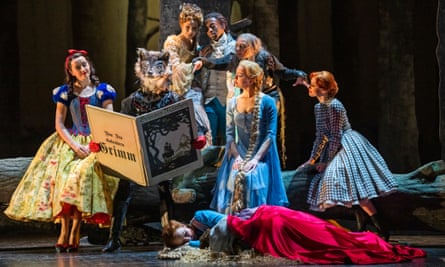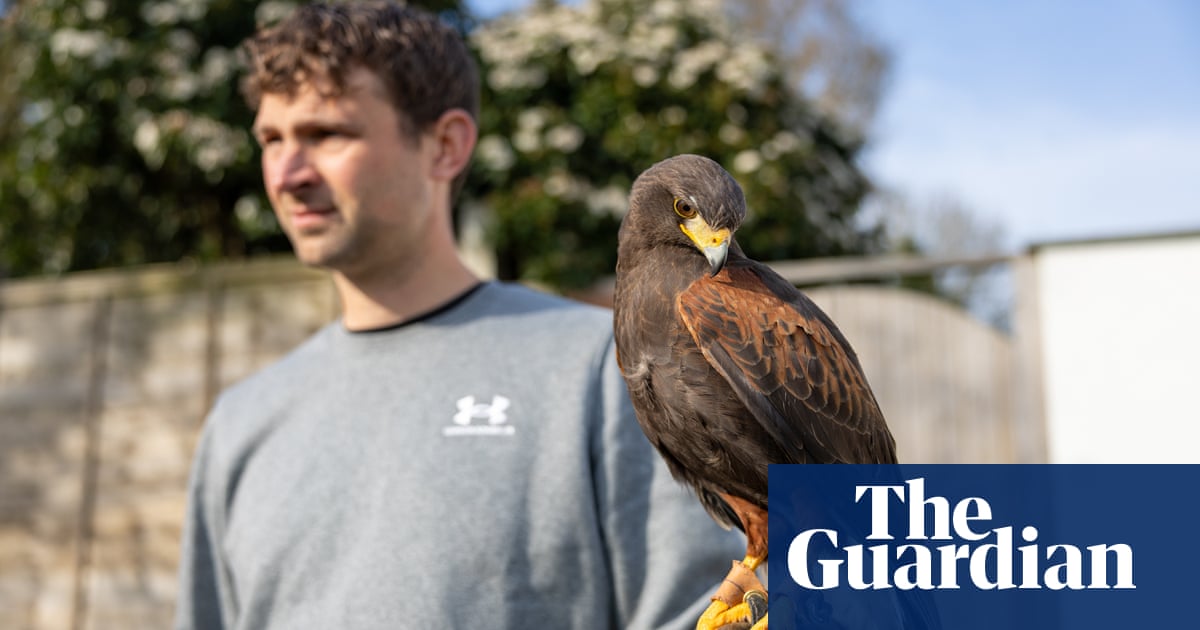Operas don’t get more Christmassy than Engelbert Humperdinck’s Hansel and Gretel. Not so much in content – crushing poverty, a scary forest, a child-eating witch – as by venerable association since its world premiere on 23 December 1893. Long before it became a fixture of festive programming, the composer gifted early versions of the score to his fiancee for Christmas. Twice.
We can only hope she was as delighted by it as the hordes of children brought to the Royal Opera’s latest “family-friendly” matinee revival of Antony McDonald’s 2018 production, sung in English translation. Clad in plastic wellies, mini bow ties and everything in between – only the inflatable booster seat was de rigueur – they provided a constant backdrop of muted wonder and sensible questions. Who was that figure lurking threateningly in the woods? Why did that stag have a rifle?
For the adults in the audience, McDonald’s staging makes the bigger picture rather too obvious. It all takes place inside an enormous picture frame. A painted alpine scene on a scrim reveals brief glimpses of family life during the overture: first happy then increasingly impoverished, with empty shelves and squabbling. An oversized copy of Grimm’s Fairy Tales appears periodically throughout.

There is a gorgeous, blink-and-you’ll-miss-it ballet as the children sleep, involving a panoply of other fairytale characters (Snow White, Cinderella and her prince, Rapunzel, Little Red Riding Hood and the Big Bad Wolf) – but it is a rare, unexplained moment of magic. And there ultimately isn’t much space for adult enchantment when the protagonists are this overdrawn. Kate Lindsey’s Hansel stomps and gurns, every gesture panto-ready, while Heidi Stober’s Gretel has the manic energy of a kids’ TV presenter. The sudden tranquillity of their evening prayer feels out of place, its tempo unsettled.
Carole Wilson’s Witch has a fine line in cackling (one young audience member immediately burst into tears) but otherwise sounds uncomfortable. The smaller roles are excellent, the chorus of rescued children in the final scene beautifully blended. In a promising UK debut in the pit, conductor Giedrė Šlekytė makes space for some exquisite solo lines and injects Humperdinck’s luxuriant score with enough momentum to prevent stodginess. But perhaps none of this matters as much as the roar of fury hurled at Wilson’s Witch during the curtain calls, or the gaze of one child, still fixed wide-eyed on the stage as she is pulled towards the exit.

.png) 3 months ago
33
3 months ago
33













































